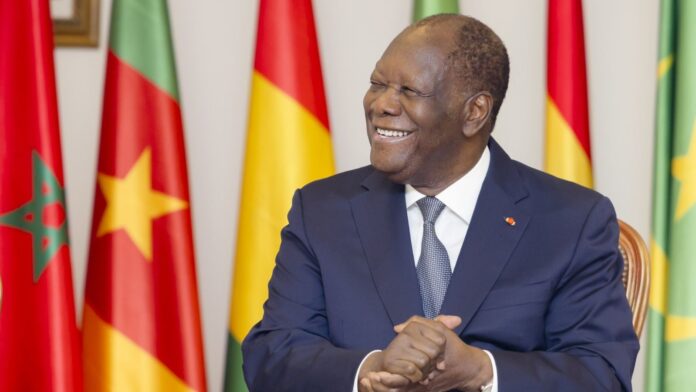Tensions are simmering in Côte d’Ivoire following reports of an alleged coup attempt – unconfirmed but widely discussed in political and social circles – that threaten to destabilize one of West Africa’s last remaining democratic bulwarks in a region increasingly dominated by military rule.
While authorities in Abidjan have remained tight-lipped, and no official statement has verified the plot, the timing and growing sense of unease have not gone unnoticed. In a region where four countries have succumbed to coups since 2020, including Mali, Burkina Faso, Niger, and Guinea, observers are questioning whether Côte d’Ivoire is poised to follow suit.
Once hailed as a post-conflict success story after years of civil unrest and contested elections, Côte d’Ivoire is now navigating turbulent waters – socially, politically and geopolitically.
A diverse society under strain
With a population nearing 30 million, Côte d’Ivoire is one of the most ethnically diverse countries in West Africa. More than 60 ethnic groups form its rich social fabric. The Akan, the largest group, make up over a third of the population, followed by the Voltaiques, Mandes, and Krous. This diversity, while a cultural strength, has also historically been manipulated during electoral contests, sometimes triggering violence.
“The country’s ethnic makeup has always been politicised, especially during elections,” said Amara Diabaté, a political analyst in Yamoussoukro. “In times of uncertainty, old grievances resurface.”
This fragmentation, combined with economic inequality and youth unemployment, provides fertile ground for political discontent – the kind that, in neighbouring countries, has contributed to abrupt regime change.
Gold, oil and the burden of wealth
Côte d’Ivoire’s economic rise has been impressive on paper. Once known predominantly for cocoa – it remains the world’s top exporter – the country is now rapidly expanding its extractive industries.
Gold production reached 51 metric tonnes in 2023, and a massive deposit discovered last year in the west could make the country a major continental player. Offshore, the Baleine Field, operated by Italy’s Eni, is pumping tens of thousands of barrels of oil daily.
Add to that reserves of diamonds, iron ore, manganese, lithium and coltan, and Côte d’Ivoire looks like a model of resource-driven development. Mining tax revenues have surged more than twentyfold since 2012.
Yet, for many Ivorians, the wealth has not translated into better lives. “We hear of billions flowing in, but still, we have no jobs, no clinics, no reliable electricity,” said Mariam Coulibaly, a 24-year-old university graduate in Bouaké. “It’s like this money exists in another world.”
This disconnect between national wealth and local experience is a recurring theme in the region and one of the grievances fuelling regime collapses in countries like Niger and Burkina Faso.
France: friend or burden?
At the heart of the regional crisis lies a thorny question: France’s role in its former colonies. Côte d’Ivoire has long been one of Paris’s closest allies in Africa. French remains the official language, French businesses dominate key sectors, and bilateral defence ties have remained intact even as others have frayed.
But public sentiment is changing. In cities across Francophone Africa, French flags have been burned, and protests have called for an end to “neocolonialism.” Although not as intense in Côte d’Ivoire, the undercurrents are palpable.
“There is a generational shift,” said Aminata Koné, a sociology lecturer at Félix Houphouët-Boigny University. “Young people want sovereignty, they want dignity. France is seen, rightly or wrongly, as an obstacle to that.”
The coups in Mali, Burkina Faso and Niger all carried strong anti-French messages. In each case, military leaders expelled French troops and embraced new security partnerships – often with Russia.
If a similar trajectory were to take root in Côte d’Ivoire, it would mark a significant realignment in West African geopolitics and an erosion of France’s post-colonial influence.
A regional contagion
The pattern of coups across the Sahel has unfolded with striking consistency. Civilian governments – often seen as corrupt, ineffective or overly dependent on foreign powers – fall. Military officers claim to restore dignity and sovereignty. Foreign troops, especially French forces, are sent packing. Moscow often enters the vacuum.
In Burkina Faso, the 2022 coup led by Captain Ibrahim Traoré has brought some nationalist fervour, but also repression. Independent journalism has been muzzled, civil society weakened, and insecurity remains rife. Mali and Niger tell similar stories.
Côte d’Ivoire, so far, has resisted the contagion. President Alassane Ouattara, in power since 2011, has overseen a decade of growth and relative stability. But his controversial third-term bid in 2020 – facilitated by a constitutional amendment – damaged his democratic credentials.
“There’s a growing sense that the political elite is out of touch,” said Dr. Issiaka Zongo, a governance expert. “People see wealth in elite circles, but struggle with inflation and unemployment daily. It creates a sense of injustice.”
Is Abidjan next?
Though the alleged coup plot remains unconfirmed, its mere possibility has sparked alarm. The country’s army is diverse, with loyalties divided along regional and ethnic lines. Previous coups and mutinies – particularly the 2017 soldier uprisings – revealed cracks in military discipline and unity.
If parts of the armed forces feel marginalized or perceive the political class as illegitimate, the danger becomes real. As one retired officer, speaking anonymously, put it: “There are frustrations in the barracks. If a spark comes, it could spread fast.”
For now, Ouattara’s government appears in control. But the ghosts of instability are never far in West Africa, especially when the neighborhood is burning.
The road ahead
The coming months will be crucial. Presidential elections are due in 2025, and many are watching whether the political space will remain open and inclusive. Civil society groups are calling for reforms, transparency and a crackdown on corruption.
In the meantime, regional bodies like ECOWAS are struggling to regain credibility after failing to reverse recent coups. Their inability to deter military takeovers has weakened democratic norms.
For Côte d’Ivoire, the path forward must balance economic opportunity with social justice, sovereignty with global partnerships, and security with freedom. Whether it succeeds or slides further into uncertainty will depend not just on political elites – but on the will of its citizens.
Mohamed Mohamoud Adde is a journalist and academic specializing in world affairs, conflict, and media. He teaches journalism at Somali National University and contributes to regional and international media platforms.


